Frontier Centre for Public Policy
It’s Time To Stop Church Arsons And What Fuels Them
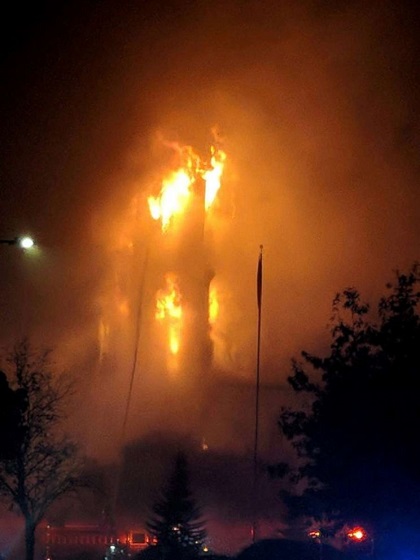
From the Frontier Centre for Public Policy
By Lee Harding
Religious freedoms and the right to worship have been a recognized hallmark of civilized societies for centuries. The preamble of Canada’s constitution says our country is built on the principles that acknowledge the supremacy of God and the rule of law. In defiance of both, almost 600 Canadian places of worship have suffered arson in recent years. Nothing could be more unCanadian.
The stats were revealed by Member of Parliament Marc Dalton following a formal inquiry to the federal government. The response showed 592 arsons had been set on places of worship between 2010 and 2022. they rose from 58 in 2020 to 90 in 2021, then down to 74 in 2022.
The peak coincides with claims made in May of 2021 that the remains of 215 school children had been discovered on the site of the former Kamloops Residential School.
Although Prime Minister Justin Trudeau called a subsequent wave of church burnings “unacceptable and wrong” he also called their likely motivations “real and fully understandable.” This hardly doused the flames.
These arsons far outnumber those made on Canadian churches in the 1920s by the Ku Klux Klan, which opposed non-Protestants and non-whites. In those years the KKK desecrated Sarnia’s St. Joseph’s Catholic Church. They killed ten people when they set Saint-Boniface College in Winnipeg on fire. They also burned the Cathedral-Basilica of Notre-Dame de Quebec. In 1926, three Klan members were jailed after they blew up St. Mary’s Roman Catholic Church in Barrie, Ont.
The Klan soon fizzled out, seemingly unlike these recent church burnings. The 110-year-old Notre-Dame-des-Sept-Allégresses Catholic church burned down in Trois-Rivières, Quebec last month, but whether arson was involved has not been confirmed.
The presence of bodies underneath the former residential school in Kamloops has not been confirmed either. A 1924 septic field could also account for soil anomalies found there by ground-penetrating radar. Eight million federal tax dollars spent to investigate the site have yielded no remains and details on how the money was spent are sketchy. It’s high time the site was excavated to confirm or rule out the graves and do autopsies on any corpses found there.
Federal funds also fuel the Canadian Anti-Hate Network (CAHN), the Orwellian title for a group that fuels resentment against socially conservative organizations with negative characterizations. On August 7, CAHN published “40 Ways To Fight The Far-Right: Tactics for Community Activists in Canada” thanks to $640,000 from Ottawa.
“White boys and men make up the majority of people involved in hate-promoting movements,” the handbook explains. Pro-life and pro-parent groups, CAHN says, are among those “characterized by racism, antisemitism, Islamophobia, misogyny, anti-2SLGBTQ+ views, and pro-colonialist/ anti-Indigenous bigotry.”
CAHN says the Catholic-dominated, pro-life organization Campaign Life Coalition is a “hate movement.” Liberty Coalition Canada, a legal defence organization, and the activist organization Action4Canada are similarly denigrated for their alleged belief that Canada was founded on Christian values and attempts to reassert such values.
Meanwhile, the CAHN guide advocates “antifascist” doxing, including infiltration of right-leaning organizations. getting people fired, and ending friendships.
Dalton’s Bill C-411 the “Anti-Arson Act” would do more to deter hate-motivated crimes than CAHN ever will. The legislation would punish those who set fires and explosions at religious places. A first offence would get a mandatory five-year jail sentence, while subsequent offenses would prompt seven years.
When respect for the supremacy of God and the rule of law fail, rights give way to wrongs. It’s time to stop the fires and the disputable claims that fuel them, and restore respect for people of faith, their right to worship, and their places of worship.
Lee Harding is a Research Associate for the Frontier Centre for Public Policy.
Business
BC Ferries Deal With China Risks Canada’s Security

From the Frontier Centre for Public Policy
A BC Ferries contract with China risks national security, public transparency and Canadian safety. Why are we still looking the other way?
Scott McGregor exposes how a billion-dollar BC Ferries deal with a Chinese shipyard reflects a deeper failure: Canadian institutions are shielding Beijing’s interests—at taxpayers’ expense—while ignoring glaring national security risks.
BC Ferries, the taxpayer-owned company operating ferry services along the B.C. coast, didn’t just sign a billion-dollar shipbuilding contract in China; it handed Beijing leverage over Canadian infrastructure.
Behind the bureaucratic talk of cost and efficiency lies a deeper scandal: a taxpayer-funded deal that puts national security, public transparency and Canadian citizens at risk, all to benefit a hostile regime.
When theBreaker.news, an independent investigative outlet in BC, filed freedom of information requests to uncover the contract’s details, BC Ferries refused to release a single page. The excuse? Disclosure might threaten its financial position, safety and the “interests of third parties.”
This refusal didn’t happen in a vacuum. It came the same day Chinese President Xi Jinping stood next to Russian President Vladimir Putin and North Korean leader Kim Jong Un in Beijing, giving a vivid display of authoritarian solidarity.
BC Ferries’ secrecy is bad optics. It flies in the face of multiple rulings by the B.C. Information and Privacy Commissioner, who has repeatedly upheld the public’s right to see contracts signed by public bodies. Cities and Crown corporations have been ordered to disclose their agreements with FIFA, the international soccer governing body, and with B.C. Place Stadium.
In fact, public institutions have disclosed deals far less sensitive than this one. Yet BC Ferries, propped up by a $1-billion loan from the Canada Infrastructure Bank (CIB), insists its Chinese shipbuilder must remain shielded from scrutiny. The result isn’t protection for taxpayers. It’s protection for Beijing’s leverage.
And that’s just the beginning. The more dangerous problem is legal. Canada has no bilateral agreements with China to guarantee fair legal treatment of its citizens. No non-prosecution provisions. No mutual legal assistance mechanisms. No safety net.
At home, corporations can sign remediation agreements to avoid prosecution if they cooperate and commit to reforms. But those agreements stop at Canada’s borders. They offer no protection for Canadians working in Weihai, the Chinese city where the vessels are built. If a dispute arises or Beijing flexes its power, those Canadians could face arbitrary detention, exit bans or national security charges. In a diplomatic crisis, they could become pawns.
This isn’t a theoretical risk. Michael Kovrig and Michael Spavor spent nearly three years in Chinese prisons after Canada detained Huawei executive Meng Wanzhou. That episode exposed the Chinese Communist Party’s playbook of hostage diplomacy. It should have ruled out any deal that places Canadian citizens or Crown assets under Chinese jurisdiction.
Yet even with that memory still fresh, the arrangement continues, quietly, with little public debate.
What we’re witnessing is a textbook case of hybrid warfare. Economic deals masked as trade. State financing disguised as commercial contracts. Political leverage embedded in infrastructure projects. And Canada, still clinging to the outdated promises of globalization, is paying for its own exposure.
At the moment when Beijing is supplying components for Russia’s war machine, Ottawa is greenlighting the outsourcing of core coastal infrastructure to a state-owned Chinese shipyard.
Parliament appears to be taking notice of the situation. The House of Commons Transport Committee has initiated a review of the $1 billion federal loan associated with the BC Ferries deal. The expected witnesses for this review include the CEO of the corporation, the CEO of the Canada Infrastructure Bank (CIB), Transport Minister Chrystia Freeland and Infrastructure Minister Gregor Robertson.
The review follows political pushback, including criticism from Freeland, who resigned from cabinet on Sept. 16, and had previously called the outsourcing decision “disappointing.”
This review is necessary because BC Ferries is a Crown-owned utility, governed by an NDP-appointed board and funded through federal support.
When a public entity conceals the terms of a massive contract and hands work to a Chinese state-controlled firm, it’s not just acting secretively. It’s normalizing a culture of opacity that weakens Canadian sovereignty and shields foreign interests from democratic accountability.
BC Ferries defends the deal by pointing to its projected economic benefits: four new major vessels, hybrid propulsion systems, 50,000 job-years and more than $4.5 billion in forecasted economic output.
But those figures come at the cost of strategic blindness.
Time and again, Canadian policymakers treat China like an ordinary business partner, even as the Chinese Communist Party uses law, finance and supply chains as tools of global influence. While other democracies are pulling back from partnerships with Chinese state firms, Canada looks the other way, tethered to outdated trade assumptions and short-term economics.
The remedy starts with sunlight. Contracts signed by public bodies must be disclosed, especially when they involve authoritarian regimes. But transparency is only the first step.
Canada must adopt a hybrid warfare lens for every major economic decision. That means asking hard questions: Does this deal strengthen or weaken our position? Does it open the door to foreign influence? Does it endanger Canadians abroad? Short-term savings can breed long-term dependency, and in China’s case, geopolitical exposure.
BC Ferries’ shipbuilding contract with China isn’t just a procurement mistake. It’s a warning.
Without legal safeguards, public oversight and strategic foresight, Canada isn’t just buying ferries; it’s handing over control.
And Canadians deserve better.
Scott McGregor is an intelligence consultant and co-author of The Mosaic Effect. He is a senior fellow at the Council on Countering Hybrid Warfare and writes here for the Frontier Centre for Public Policy.
Business
Canada Is Still Paying The Price For Trudeau’s Fiscal Delusions
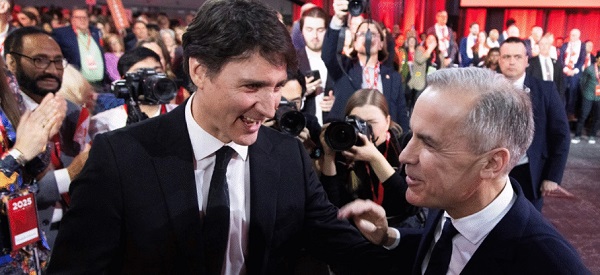
From the Frontier Centre for Public Policy
By Lee Harding
Trudeau’s reckless spending has left Canadians with record debt, poorer services and no path back to a balanced budget.
It’s time for Canada to break free from Trudeau’s big-spending legacy. With soaring deficits, mounting debt, and stalled growth, we need a budget that cuts red tape, flattens taxes, and puts the economy first.
Justin Trudeau may be gone, but the economic consequences of his fiscal approach, chronic deficits, rising debt costs and stagnating growth, are still weighing heavily on Canada.
Before becoming prime minister, Justin Trudeau famously said, “The budget will balance itself.” He argued that if expenditures stayed the same, economic growth would drive higher tax revenues and eventually outpace spending. Voila–balance!
But while the theory may have been sound, Trudeau had no real intention of pursuing a balanced budget. In 2015, he campaigned on intentionally overspending and borrowing to build infrastructure, arguing that low interest rates made it the right time to run deficits.
This argument, weak in its concept, proved even more flawed in practice. Post-pandemic deficits have been horrendous, far exceeding the modest overspending initially promised. The budgetary deficit was $327.7 billion in 2020–21, $90.3 billion the year following, and between $35.3 billion and $61.9 billion in the years since.
Those formerly historically low interest rates are also gone now, partly because the federal government has spent so much. The original excuse for deficits has vanished, but the red ink and Canada’s infrastructure deficit remain.
For two decades, interest payments on federal debt steadily declined, falling from 24.6 per cent of government revenues in 1999–2000 to just 5.9 per cent in 2021–22, thanks largely to falling interest rates and prior fiscal restraint. But that trend has reversed. By 2023–24, payments surged past 10 per cent for the first time in over a decade, as rising interest rates collided with record federal debt built up under Trudeau.
Rising debt costs are only part of the story. Federal revenues aren’t what they could have been because Canada’s economy has stagnated. Population growth pads our overall GDP growth stats, but masks our productivity problem. From 2014 to 2022, Canada had near-lowest GDP growth among 30 countries in the Organization for Economic Co-operation and Development. Canada’s average growth rate during that period (0.6 per cent) was only ahead of Luxembourg (0.5 per cent) and Mexico (0.4 per cent).Why should a country like Canada, so blessed with natural resources and know-how, do so poorly? Capital investment has fled because our government has made onerous regulations, especially hindering our energy industry. In theory, there’s now a remedy. Thanks to new legislation, the Carney government can extend its magic sceptre to those who align with its agenda to fast-track major projects and bypass the labyrinth it created. But unless you’re onside, the red tape still strangles you.
But as the private sector withers under red tape, Ottawa’s civil service keeps ballooning. Some trimming has begun, rattling public sector unions. Still, Canada will be left with at least five times as many federal tax employees per capita as the U.S.
Canada also needs to ease its hell-bent pursuit of net-zero carbon emissions. Hydrocarbons still power the Canadian economy, from vehicles to home heating, and aren’t practically replaceable. Canada has already demonstrated that pursuing net-zero targets can result in near-zero per capita growth. Despite high immigration, the OECD projects Canada to have the lowest overall GDP growth from 2030 to 2060.
The Nov. 4 release of the federal budget is better late than never. So would be a plan to grow the economy, slash red tape and eliminate the deficit. But we’re unlikely to get one.
Lee Harding is a research fellow with the Frontier Centre for Public Policy.
-

 Business12 hours ago
Business12 hours agoOver $2B California Solar Plant Built To Last, Now Closing Over Inefficiency
-

 Autism2 days ago
Autism2 days agoAutism – what we know
-
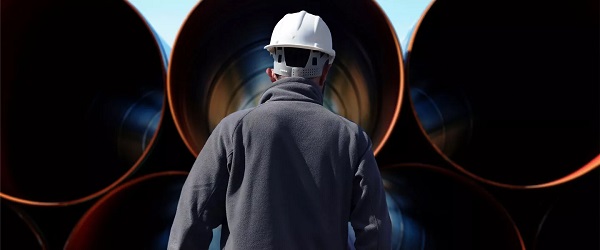
 Alberta2 days ago
Alberta2 days agoFederal policies continue to block oil pipelines
-

 espionage1 day ago
espionage1 day agoCanada Under Siege: Sparking a National Dialogue on Security and Corruption
-

 Business11 hours ago
Business11 hours agoWEF has a plan to overhaul the global financial system by monetizing nature
-

 Business13 hours ago
Business13 hours agoThe Leaked Conversation at the heart of the federal Gun Buyback Boondoggle
-
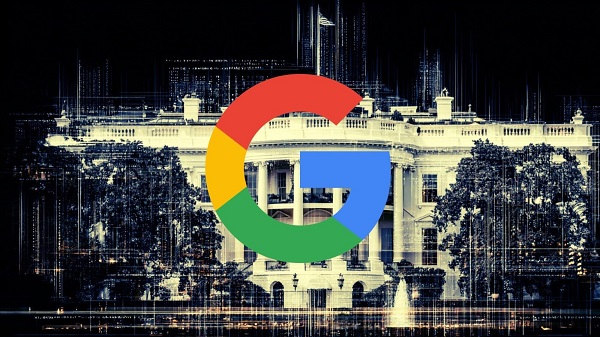
 Business1 day ago
Business1 day agoGoogle Admits Biden White House Pressured Content Removal, Promises to Restore Banned YouTube Accounts
-
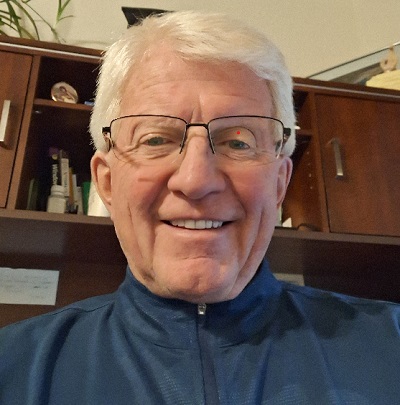
 Opinion12 hours ago
Opinion12 hours agoThe City of Red Deer’s financial mess – KPMG report outlines failure of council to control spending





